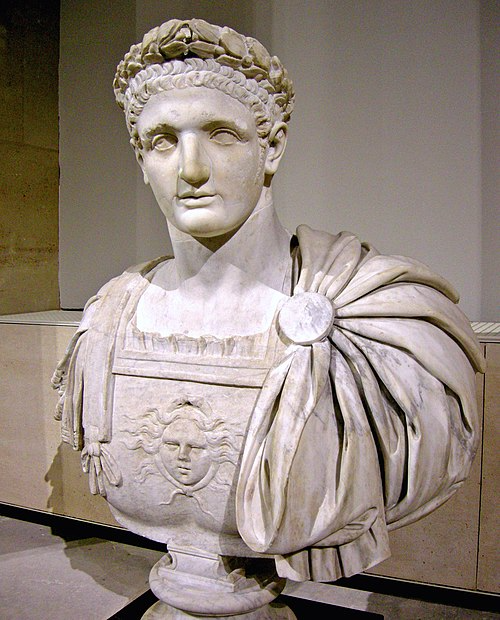Who Was Domitian, Emperor of Rome?
Introduction
When John wrote the Book of Revelation, most scholars believe the Roman emperor was Titus Flavius Domitian. He ruled from AD 81 to 96, and his policies, personality, and ambitions created the cultural and political climate in which Revelation’s first readers lived.
To understand Revelation’s urgency—its warnings, its promises, and its defiant hope—we need to know the man who stood at the head of the empire.
Domitian’s Rise to Power
Domitian was the youngest son of Vespasian and the brother of Titus. His path to the throne was shaped by the chaos of Rome’s Year of the Four Emperors (AD 69), after which his family’s Flavian dynasty brought stability.
When Titus died unexpectedly in AD 81, Domitian became emperor. He was determined to rule firmly and to secure loyalty to the imperial office. Ancient sources like Suetonius portray him as suspicious and authoritarian, while modern historians like Brian W. Jones note his administrative competence (The Emperor Domitian, p. 102).
Domitian took the title “Dominus et Deus” (“Lord and God”)—a claim that would have sat in direct conflict with the Christian confession that “Jesus is Lord.”
A bust of Domitian, the Emperor of Rome, who ruled when Revelation was written.
The Imperial Cult Under Domitian
Rome’s emperors had long received divine honors, but under Domitian the imperial cult took on renewed vigor. Temples to the emperor flourished, and participation in emperor worship was a marker of loyalty to Rome.
For most citizens, this was not a matter of personal faith—it was a civic duty. But for Christians, whose allegiance belonged to Christ alone, the imperial cult was idolatry.
Refusing to honor the emperor could result in social isolation, loss of trade, or even prosecution. The cultural weight of emperor worship in Domitian’s time is explored more fully in Emperor Worship and the Imperial Cult in the First Century.
Was Domitian a Persecutor of Christians?
Church tradition, preserved in writers like Eusebius and later in Foxe’s Book of Martyrs, names Domitian as the instigator of a “second persecution” against Christians. Some accounts say he banished John to Patmos Island – Where Revelation Was Written, as recorded in Where Was Revelation Written.
However, modern historians are cautious. Evidence for empire-wide persecution under Domitian is limited. Craig Koester notes that opposition may have been more local and sporadic, “rooted in the pressures of civic religion rather than official imperial decrees” (Revelation, AB, p. 90).
Still, for believers in places like Smyrna, Pergamum, or Thyatira, the distinction between “local” and “imperial” would not have mattered much. The result was the same: exclusion, hostility, and sometimes death.
Domitian and the Jewish Tax
One of Domitian’s more controversial policies was his enforcement of the Fiscus Judaicus, a tax originally levied on Jews after the destruction of the temple in AD 70. Under Domitian, the tax was extended even to those who “lived like Jews,” which may have included some Christians who kept Jewish customs.
This blurred the line between Judaism (which had legal protection in the empire) and Christianity (which did not), creating fresh opportunities for accusation and harassment. Everett Ferguson points out that in this environment, “Christians could be prosecuted under the pretense of enforcing existing laws” (Backgrounds of Early Christianity, p. 567).
Domitian’s Death and Reputation
In AD 96, Domitian was assassinated in a palace conspiracy. The Senate declared damnatio memoriae—an official condemnation that attempted to erase him from public memory.
Yet his legacy remained. For Christians, he became a symbol of the arrogant ruler who demands divine honors, much like the beast in Revelation. His reign provided fertile soil for John’s visions of a kingdom where only the Lamb is worthy to receive power and glory.
Why Domitian Matters for Reading Revelation
Understanding Domitian’s reign sharpens our reading of Revelation:
His claim to divine titles resonates with Revelation’s critique of false worship and political idolatry.
His emphasis on civic loyalty through emperor worship frames the challenge faced by The Seven Churches in Revelation.
His potential role in John’s exile helps explain the urgency of the call to “overcome” and remain faithful (Persecution of Early Christians in the Roman Empire).
Lessons for Today
Domitian’s story is not just an ancient biography—it’s a reminder of how faith collides with systems of power. While most believers today do not face an emperor demanding worship, we still navigate cultural pressures to compromise our allegiance to Christ.
Revelation’s vision of the risen Jesus walking among His churches is as relevant now as it was under Domitian: the One “who is, and who was, and who is to come” reigns over every earthly ruler.
